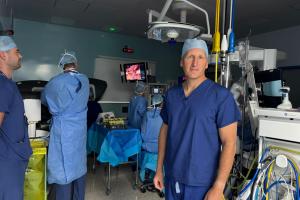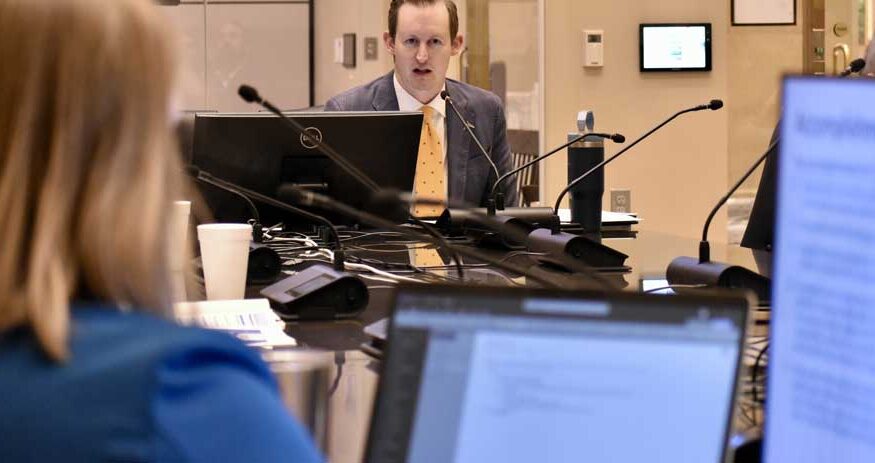
Patients in North Devon can now benefit from advanced robotic surgery techniques for complex hernia repairs. This innovative approach significantly reduces hospital stays, allowing patients to undergo surgery and return home within a single day. Previously, such procedures often required close to a week of hospitalization.
The introduction of robotic-assisted surgery in the region marks a significant advancement in medical care, particularly under the National Health Service (NHS). The new technology enhances precision in surgical procedures, leading to fewer complications and quicker recovery times.
Dr. Emily Parker, a consultant surgeon involved in the program, highlighted the advantages of this technique. “The robotic system allows for greater accuracy and minimally invasive procedures,” she stated. “Patients experience less pain and a faster return to their daily activities.”
Research indicates that robotic surgeries can reduce the likelihood of complications and improve patient outcomes. In North Devon, the ability to have hernia repairs performed as a same-day procedure is expected to alleviate some of the pressures on local hospitals, which have been experiencing increased demand for surgical services.
As of September 2023, NHS facilities in North Devon have begun implementing these new robotic techniques, providing patients with access to cutting-edge medical technology. The initiative is part of a broader effort to modernize healthcare services across the region, ensuring that residents receive the best possible care.
Statistics show that surgical procedures utilizing robotic systems can lead to reduced recovery times. Patients can often return to work within days, compared to the weeks typically required for traditional surgeries. This shift not only benefits individuals but also helps to streamline operations within the healthcare system, making it more efficient.
Healthcare providers anticipate that this development will enhance patient satisfaction. With the ability to undergo procedures in a less stressful environment and return home sooner, many patients are likely to appreciate the advancements in care.
The rollout of robotic surgery in North Devon is a notable example of how technology is transforming healthcare. As other regions observe the success of this initiative, it may set a precedent for similar advancements elsewhere, paving the way for improved surgical practices and patient experiences across the country.
In summary, the introduction of robotic abdominal surgery for hernia repairs in North Devon represents a significant step forward in medical treatment. By reducing hospital stay durations and improving surgical outcomes, this innovation not only enhances patient care but also contributes positively to the overall efficiency of healthcare services.






